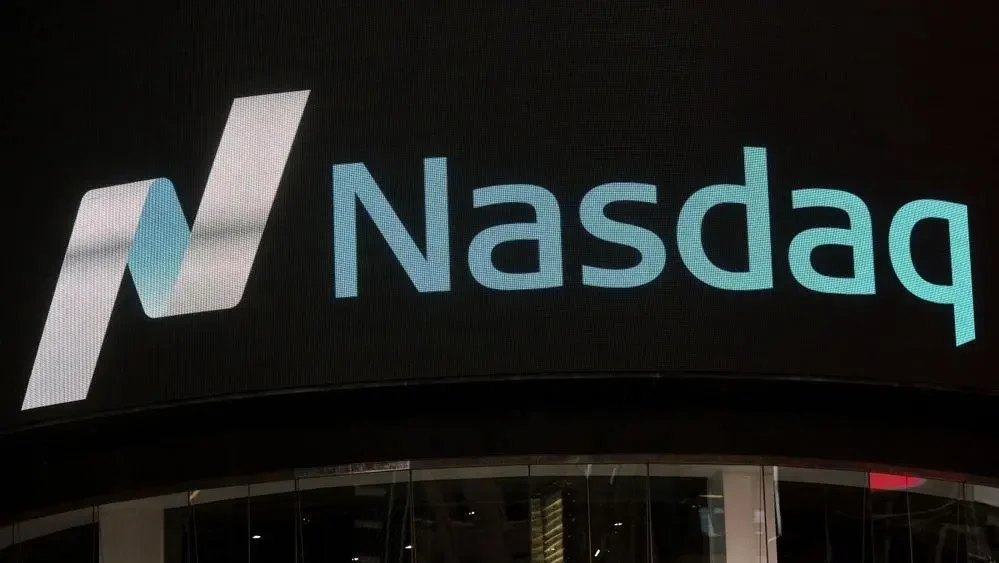In a landmark move reflecting deepening ties between China and the Middle East, China Development Bank has listed $1 billion worth of dual-currency bonds on Nasdaq Dubai. This major listing underscores China’s commitment to expanding its global financial presence while strengthening its economic relationship with the United Arab Emirates and beyond.
The China Development Bank dual-currency bonds listing is more than just another financial transaction. It signals the growing importance of Dubai as a global financial hub and demonstrates China’s proactive approach to international investment diversification. In this article, we explore the significance of this listing, what it means for investors, and how it reflects broader trends in global finance.
Strengthening financial ties between China and Dubai
Over the past decade, China and the UAE have built a robust partnership that extends beyond trade into investment, technology, energy, and finance. The listing of the China Development Bank dual-currency bonds on Nasdaq Dubai is a new milestone in this evolving relationship.

The China Development Bank (CDB), as China’s primary policy bank, plays a crucial role in funding large infrastructure projects and supporting the Belt and Road Initiative (BRI). By choosing Nasdaq Dubai for this significant bond issuance, CDB not only diversifies its investor base but also strengthens its presence in a region critical to the BRI’s success.
Dubai, with its strategic location and business-friendly environment, has emerged as a gateway between East and West. The emirate has positioned itself as a bridge for Chinese companies looking to access Middle Eastern and African markets.

What are dual-currency bonds?
Dual-currency bonds are a unique financial instrument that allows issuers to raise funds in two different currencies. In this case, China Development Bank issued bonds denominated in both US dollars and offshore Chinese yuan (also known as renminbi or RMB).
Here’s why dual-currency bonds matter:
• Investor flexibility: Investors can choose which currency suits their risk appetite and investment goals.
• Currency diversification: Issuers reduce reliance on a single currency, hedging against fluctuations.
• Stronger global appeal: Attracts a wider pool of investors from different regions.
For China, issuing bonds in offshore yuan helps promote its currency on the global stage, which is a long-term strategic goal. For Dubai and regional investors, the availability of yuan-denominated assets provides an opportunity to engage more deeply with the Chinese economy.
Details of the China Development Bank dual-currency bonds
The total value of the listing is $1 billion, divided into two tranches:
• $500 million denominated in US dollars, with a competitive interest rate aimed at global institutional investors.
• $500 million denominated in offshore yuan, targeting investors interested in yuan exposure and diversifying their currency holdings.
These bonds are designed to cater to a variety of investors, from sovereign wealth funds and banks to pension funds and private investors looking for stable, high-quality fixed-income products.

Why Nasdaq Dubai?
Nasdaq Dubai has become a favorite destination for Chinese issuers in recent years. The exchange offers a number of advantages:
• International investor access: Nasdaq Dubai provides direct access to both regional and international investors, making it attractive for global listings.
• Flexible regulatory framework: The exchange follows international best practices, ensuring transparency and investor protection.
• Strategic location: Dubai’s geographic position allows it to serve markets across Asia, Europe, and Africa seamlessly.
Moreover, Nasdaq Dubai has a strong track record of hosting major bond listings from Chinese financial institutions, including ICBC and Agricultural Bank of China. This growing trend reflects Dubai’s rising role as a preferred platform for Chinese debt instruments.
A win-win for China and the UAE
The listing of the China Development Bank dual-currency bonds benefits both China and the UAE in several ways.
It enhances financial cooperation, strengthens bilateral ties, and encourages further economic integration. It supports China’s efforts to promote the yuan as a global reserve currency. At the same time, it boosts Dubai’s global financial profile and reinforces the city’s ambition to become a leading global capital markets hub.
The UAE’s strong sovereign credit profile and diversified economy make it an ideal partner for China’s overseas financial expansion. Both countries share a vision of economic diversification and open trade, further solidifying their long-term collaboration.
Impact on global investors
For global investors, the China Development Bank dual-currency bonds represent a unique opportunity. With rising global interest in Asian assets and currencies, this listing offers attractive yields, reduced risk, and portfolio diversification.
Institutional investors are increasingly seeking assets that are both safe and yield-generating. With CDB’s solid backing and the credibility of Nasdaq Dubai, these bonds offer a compelling option.
How this listing fits into China’s global strategy
The issuance of the China Development Bank dual-currency bonds aligns with China’s broader economic goals. It supports the expansion of the Belt and Road Initiative by providing financing for large infrastructure projects across Asia, Africa, and Europe. It strengthens China’s financial soft power by encouraging global use of the yuan and reducing reliance on the US dollar. It also diversifies funding sources by accessing different investor bases and markets, enhancing financial resilience.
Through such listings, China demonstrates its commitment to global economic integration and to creating a more multipolar financial world.
Dubai’s strategy for attracting Chinese capital
Dubai has long recognized the strategic value of Chinese investment. Over the years, the emirate has implemented a series of policies and initiatives to welcome Chinese businesses and financial institutions.
Special free zones offer tax incentives and full foreign ownership rights. Bilateral agreements have been put in place to strengthen legal and regulatory cooperation, simplifying cross-border financial transactions. The city has also invested heavily in infrastructure, developing ports, logistics hubs, and business districts tailored to Chinese investors.
These efforts have paid off, with Chinese firms increasing their presence in Dubai across various sectors, from real estate to fintech.
The future of yuan bonds in the Middle East
The popularity of yuan-denominated assets is steadily growing in the Middle East. Many Gulf Cooperation Council (GCC) countries, including the UAE and Saudi Arabia, are looking to diversify their reserves and reduce dependence on the dollar.
The success of the China Development Bank dual-currency bonds could pave the way for more such issuances in the region. It also aligns with broader trends, such as the rise of China-GCC trade, currency swap agreements with China to facilitate trade and investment, and growing investor appetite for Chinese assets.
Regional investors, including sovereign wealth funds, are keen to tap into China’s economic growth story and find new ways to diversify.

Challenges and considerations
While the listing is undoubtedly a milestone, it does come with challenges.
Currency risk is a major consideration. Investors in yuan-denominated bonds face potential currency fluctuations, which can impact returns. Geopolitical tensions, including US-China relations and regional stability, can also affect investor sentiment. Additionally, there is a need for greater market education, as some investors may still be unfamiliar with dual-currency bonds and how they function.
However, the benefits for both issuers and investors appear to outweigh these challenges, as reflected in the strong interest shown during the initial offering.
Looking ahead
The listing of the China Development Bank dual-currency bonds on Nasdaq Dubai represents a significant step forward in international finance. It showcases how cross-border cooperation, strategic thinking, and financial innovation can create new opportunities for investors and economies alike.
For China, it is a move toward greater international financial influence. For Dubai, it cements its status as a leading global marketplace for innovative financial products. And for investors, it provides access to a diversified and high-quality investment option that combines safety and yield.
As global markets continue to evolve, more such collaborations and listings are expected, reshaping the future of finance in Asia, the Middle East, and beyond.
Conclusion
The China Development Bank dual-currency bonds listing on Nasdaq Dubai is not just another financial headline. It is a testament to the strong and growing ties between China and the UAE. It offers investors worldwide an exciting new avenue for portfolio diversification and represents a step toward a more connected and diversified global financial system.
Whether you are an institutional investor looking for stable yields, a policymaker exploring cross-border partnerships, or simply someone interested in the evolution of global finance, this landmark listing is worth watching closely. It marks the beginning of a new chapter in financial cooperation, and the ripple effects will be felt across global markets for years to come.
Follow us on Instagram: UAE STORIES
Read More: UAE National Day 2025 Could Mean a 5-Day Long Weekend












